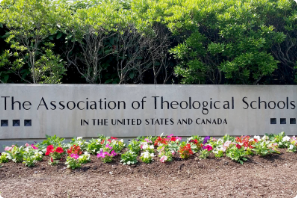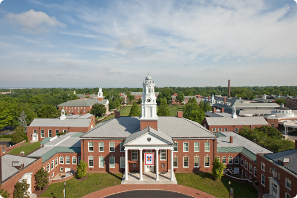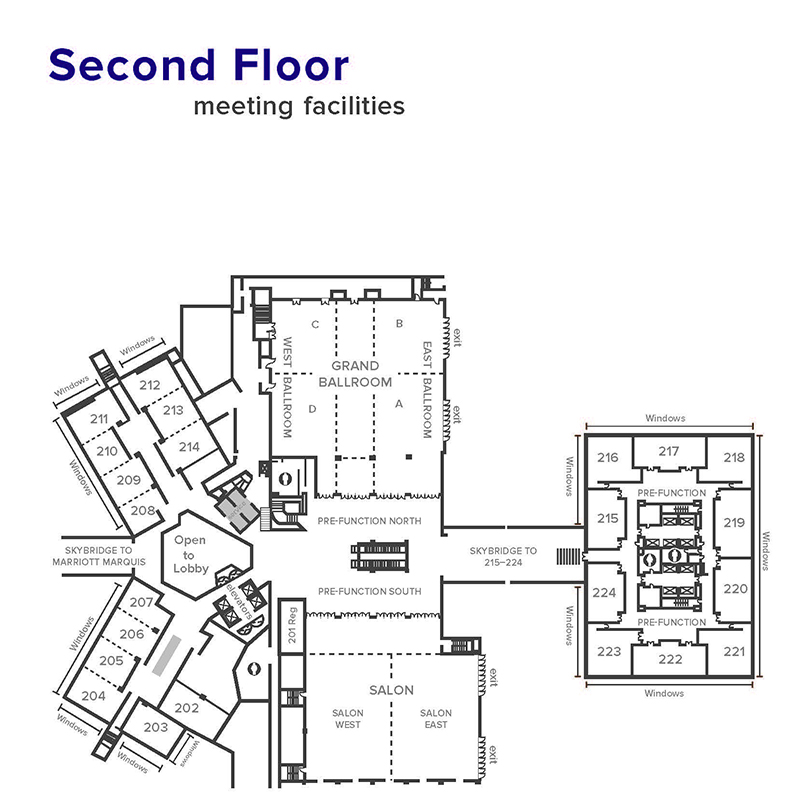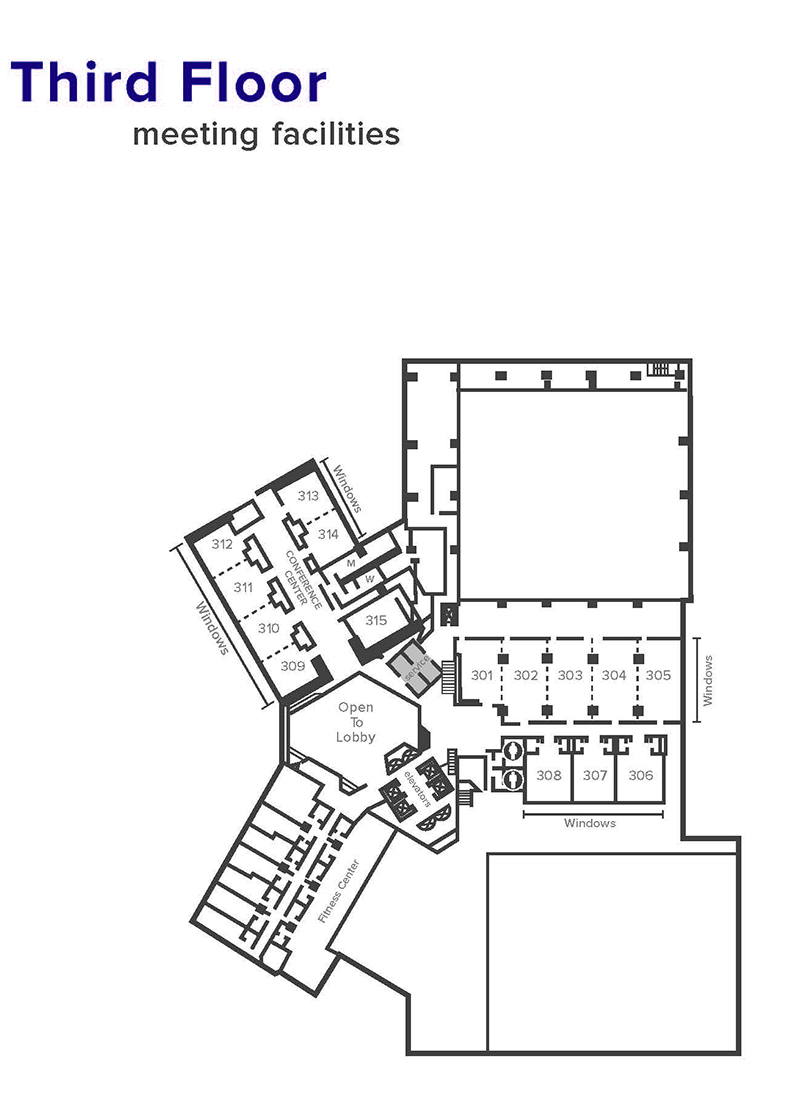SESSION A (June 19, 3:15 p.m.)
1A A Dozen Myths about the 2020 Standards
ATS Accreditation Staff
There were several significant changes to the fully redeveloped Standards of Accreditation approved by the membership in 2020. As with any significant transition of this kind, it sometimes becomes difficult to separate the actual from the imagined. This workshop will take a somewhat playful look at various “myths” that have emerged about the 2020 Standards to clarify just what changed (and what didn’t).
3A Governance Structures That Support Innovation
Charisse L. Gillett, President, Lexington Theological Seminary
Following more than 16 years of institutional reinvention including a declaration of financial exigency, challenges in multiple understandings of shared governance, significant changes to academic programs, fundraising protocols and enrollment practices, Lexington Theological Seminary is a thriving institution. This session will discuss how linking institutional mission and strategic imperatives to decisions of the Board of Trustees contributed to strengthening and stabilizing the institution. The workshop will explore: (1) the ways in which Lexington Theological Seminary’s understanding of shared governance supported and or constrained innovation and (2) the ways in which clarity around the seminary’s mission and strategic imperatives guided decision-making.
4A Prepared for Theological Studies? Issues Facing Discipleship Stage (Pre-Theology) Formation: Report of a Nationwide Study Conducted by St. Bernard's and the Center for Applied Research in the Apostolate
Matthew Kuhner, Vice President and Academic Dean, Assistant Professor of Systematic Theology, St. Bernard’s School of Theology and Ministry
Stephen Loughlin, President, Professor of Philosophy, St. Bernard’s School of Theology and Ministry
Funded by the Lilly Endowment’s Pathways for Tomorrow Initiative, St. Bernard's School of Theology and Ministry collaborated with the Center for Applied Research in the Apostolate (CARA) to study an often-neglected dimension of Catholic seminary formation: the Discipleship Stage, previously termed Pre-Theology, which emphasizes philosophical studies. The project focuses on Roman Catholic diocesan bishops and vocation directors across North America to gain a better understanding of the nature and scope of their challenges vis-a-vis this stage of priestly formation. A mixed methods design, using tools to capture both qualitative and quantitative data such as mass-distributed surveys and interviews/focus groups held in key dioceses from representative demographic types, resulted in an impressive 52% response rate and painted a rich picture of Discipleship Stage formation—its bright spots and its shadows. This workshop will present the results of this study for consideration and discussion, and it will conclude with comments that contextualize the findings in a broader context such as the addition of the Propaedeutic Stage of formation, the role of philosophical studies in priestly formation, and the future of seminary institutions in North America. While focused on Catholic students, this workshop will provide broad insights about student preparation that will be of value for non-Catholic schools as well.
5A “It’s Complicated”: Making the Case for a Seminary Embedded in a University
Kathryn (Kit) Kleinhans, Dean, Trinity Lutheran Seminary at Capital University
Andrew Wakefield, Dean, Campbell University Divinity School
Universities, even those with a distinctly Christian mission, often have difficulty understanding the unique challenges and opportunities that seminaries face, and the unique benefits that they bring to the larger institution. In this session, the deans of Trinity Lutheran Seminary at Capital University—an almost 200-year-old institution that became embedded in 2018—and Campbell University Divinity School—that began as an embedded seminary in 1996—will share their experiences and invite discussion around the challenges and strategies involved in persuasively articulating the value proposition for an embedded seminary.
6A Making God Laugh: Strategic Planning When You Have No Idea What’s Coming Next
Anna Robbins, President, Acadia Divinity College
The unpredictability of the future often leaves us blindsided, as exemplified by the challenges brought about by the pandemic, disrupting even the most meticulously crafted strategic plans. What if strategic planning could become a dynamic process that not only weathers unexpected storms but harnesses them to propel our institutional mission forward? Rather than merely reacting to change, what if we could glimpse the future and proactively shape our response to what’s coming next? In this workshop, we delve into the art of flexible strategic planning—where anticipation of change is seamlessly integrated with a nimble responsiveness to the unexpected. Drawing from shared knowledge and real-world experiences, we will explore the critical importance of adapting our strategic vision methods to an ever-evolving landscape. Discover how strategic planning can not only navigate challenges but also pave the way for a hopeful future, advancing the mission of theological education with resilience and foresight.
7A Navigating Financial Changes in ATS Schools
Chris Meinzer, Senior Director and COO, The Association of Theological Schools
Successfully navigating change in a theological school requires attention to trends involving finances. In this workshop, we'll review important financial trends across ATS schools in the last decade. This will include a review of revenues (net tuition, endowment, giving, and other sources), spending, investments and reserves, and operating results. Participants will have a chance to interact with the data and with one another as they consider the potential implications for their own institutions.
8A Navigating Opportunities and Challenges in Classrooms with Multiple Modalities
Ken McFayden, Academic Dean, Union Presbyterian Theological Seminary
Many theological schools are not “wired” for change in their educational models, with classroom spaces designed for in-person learning and instructors historically prepared to teach students who are physically present. Some schools have considered or adopted models that mix students who are physically present and students who access the class via videoconferencing technology to boost enrollment, generate new sources of tuition revenue, make theological education more accessible to students unable to be physical present in classes, and/or prepare students for diverse vocations in an increasingly digital and hybrid world. Amid sweeping currents impacting theological education, this workshop considers the necessity of navigational bearings as schools consider learning modalities in relation to their missions and visions and considers navigational cues for designing, implementing, and assessing classrooms with multiple modalities. Particular attention will be given to pedagogy, technology, accessibility, equity, and the roles of administrators, instructors, and students in navigating together varied opportunities and challenges in “mixed” classrooms.
WORKSHOP CURRENTLY AT MAX CAPACITY.
9A Passing the Torch: Navigating Presidential Transitions
Brian Blount, President Emeritus, Union Presbyterian Seminary
Jacqueline Lapsley, President, Union Presbyterian Seminary
Many schools are navigating presidential transitions these days, which are delicate, liminal moments in the life of an institution. Sometimes it goes well, other times less so. How does a school do it well? How does one decrease the anxiety a transition evokes in a school's constituents? Are there ways to make the transition benefit the school? Two presidents of Union Presbyterian Seminary—one leaving the office, the other coming in—share in practical terms what worked (and what didn't) in the transition at Union. There will be plenty of time for discussion of all aspects of this, sometimes, challenging season in the life of a school.
10A Rethinking Seminary Constituencies: Toward a Comprehensive Model for Theological Education
David McAllister-Wilson, President, Wesley Theological Seminary
F. Douglas Powe, Jr., Director, The Lewis Center for Church Leadership, Wesley Theological Seminary
Lovett H. Weems Jr., Senior Consultant, The Lewis Center for Church Leadership, Wesley Theological Seminary
Even as traditional seminary constituencies shrink for many schools, other opportunities are opening for new groups such as bivocational clergy and lay pastors, lay professional staff and volunteers, and those involved in immigrant ministries, social change, and new faith communities. Drawing on recent data and learning from two projects at Wesley Theological Seminary funded by Lilly Endowment Inc., the Lewis Center’s Religious Workforce Project and Wesley’s Pathways for Tomorrow project, this workshop will explore how theological schools might respond to changing trends among the US Christian religious workforce. Together, we’ll consider possible options for creative responses including pilot projects and sustainable business models.
11A Student Mental Health Challenges in Theological Schools: Research and Data-informed Insights and Strategies
David Wang, Cliff and Joyce Penner Chair for the Formation of Emotional Healthy Leaders, Fuller Theological Seminary
David Eagle, Assistant Research Professor of Global Health and Sociology, Duke University
There have been dramatic increases in mental health challenges among young people during the last decade. COVID-19 magnified the urgency of these challenges, but little is known about how mental health burdens impact students at theological schools. In this workshop, the presenters will share findings from two large-scale longitudinal studies, The Seminary Formation Project and the Seminary to Early Ministry Study, and they will discuss data-informed strategies to more effectively respond to the mental health needs of students. Attendees will be given a substantial amount of time to interact with the presented material, ask questions to the presenters, and share their own insights with one another.
12A What Do Your Alums Say They Need? Findings from the Second ATS Alum/Mapping the Workforce Survey
Deborah H. C. Gin, Director of Research and Faculty Development, The Association of Theological Schools
This session will highlight findings from a 2022–23 ATS survey of alums from member schools. Topics explored will include: competencies alums rely on, their job types and contexts, what they wish they’d learned in seminary, new skills they needed to develop during COVID, and minimum degrees and credentials required by their employers. We will compare responses gathered in 2017 from the same graduating classes. Participants will have the opportunity to engage in conversation around the study’s relevance for their graduates and educational programs.
SESSION B (June 20, 10:45 a.m.)
1B A Turning Point for Theological Education: the Truth and Reconciliation Process in Canada
Terry LeBlanc, Director Emeritus, NAIITS: An Indigenous Learning Community/Indigenous Pathways
Shari Russell, Director, NAIITS: An Indigenous Learning Community/Indigenous Pathways
In 2015, the Truth and Reconciliation Commission in Canada (TRC) issued its final report, including Ninety-four Calls to Action. These calls are an appeal to all segments of Canadian society to work with diligence toward right relationship with Indigenous peoples. Of particular significance to NAIITS was the appeal to churches and educational institutions to develop culturally appropriate educational curriculum and programming for clergy, seminaries, and congregations—a curriculum framed and managed by the Indigenous community. This session will examine the TRC process and The Calls to Action with a focus on implications for theological education as we seek to promote the creation of contextualized communities of faith inclusive of diasporic and multicultural settings.
2B A Primer on ATS Accreditation for New Leaders
ATS Accreditation Staff
With the unprecedented changes in leadership being experienced in ATS member schools, it is important that new leaders understand the ATS Standards of Accreditation as well as the revised Policies and Procedures. For example, what data are required and when are they due? How is the Board of Commissioners different than the ATS Board of Directors? What warrants submitting a notification to ATS versus submitting a petition? When do schools need to be in touch with their accrediting liaisons? And who is your liaison? This workshop will address these and other questions related to ATS accreditation.
3B The First 90 Minutes: Responding to a Crisis
Kurt Gwartney, Senior Director of Communications, Phillips Theological Seminary
As leaders in theological schools, you’re often called upon to help your institution navigate through crises. In this workshop, you’ll learn what to communicate in the first 90 minutes of a crisis. Whether it’s a natural disaster, an allegation of sexual abuse, a building fire, or an embezzlement, your institution needs to be ready to communicate quickly and responsibly to your internal and external audiences. You’ll learn how to work with communications and public relations professionals to help guide the sharing of information in a crisis and the creation of a crisis communication plan.
4B From First Steps to Long-Term Commitment: Collaborative Partnerships and the Future of Theological Education
Cedric Vine, Associate Professor of New Testament, Seventh-Day Adventist Theological Seminary
This session addresses the importance of collaborative partnerships for successful pastoral formation in a context of significant demographic and cultural change. The key issues to be addressed are how to define success, how to identify appropriate partners, how to develop mutually beneficial relationships, and how to grow a shared vision firmly rooted in hope.
5B Navigating Global Engagement in Times of Transition and Change in Theological Education
Lester Edwin J. Ruiz, Director of Accreditation and Global Engagement, The Association of Theological Schools
Emanuel Naydenov, Director of Accreditation, The Association of Theological Schools
Alyson Barra, Program Assistant for Diversities, The Association of Theological Schools
The Global Awareness and Engagement Initiative of ATS (GAEI) is committed to creating, nurturing, and transforming spaces for conversation as the methodological foundation for developing globalizing cultures in theological education. Several representatives of ATS member schools will offer brief initial comments on the theme of this workshop with specific attention given to the linkages among: (1) effective globally shaped partnerships, (2) globally oriented student learning and formation, and (3) developing practice-oriented implications of global engagement for a theological school’s mission. These will be followed by guided conversations among the workshop participants.
6B Governance Structures That Support Innovation (repeat from Session A)
Charisse L. Gillett, President, Lexington Theological Seminary
Following more than 16 years of institutional reinvention including a declaration of financial exigency, challenges in multiple understandings of shared governance, significant changes to academic programs, fundraising protocols and enrollment practices, Lexington Theological Seminary is a thriving institution. This session will discuss how linking institutional mission and strategic imperatives to decisions of the Board of Trustees contributed to strengthening and stabilizing the institution. The workshop will explore: (1) the ways in which Lexington Theological Seminary’s understanding of shared governance supported and or constrained innovation and (2) the ways in which clarity around the seminary’s mission and strategic imperatives guided decision-making.
7B Making God Laugh: Strategic Planning When You Have No Idea What’s Coming Next (repeat from Session A)
Anna Robbins, President, Acadia Divinity College
The unpredictability of the future often leaves us blindsided, as exemplified by the challenges brought about by the pandemic, disrupting even the most meticulously crafted strategic plans. What if strategic planning could become a dynamic process that not only weathers unexpected storms but harnesses them to propel our institutional mission forward? Rather than merely reacting to change, what if we could glimpse the future and proactively shape our response to what’s coming next? In this workshop, we delve into the art of flexible strategic planning—where anticipation of change is seamlessly integrated with a nimble responsiveness to the unexpected. Drawing from shared knowledge and real-world experiences, we will explore the critical importance of adapting our strategic vision methods to an ever-evolving landscape. Discover how strategic planning can not only navigate challenges but also pave the way for a hopeful future, advancing the mission of theological education with resilience and foresight.
8B Navigating Enrollment Changes in ATS Schools
Chris Meinzer, Senior Director and COO, The Association of Theological Schools
Successfully navigating change in a theological school requires an understanding of industry trends involving enrollment. In this workshop, we'll review important enrollment trends across ATS schools in the last decade including places where enrollment has grown and declined, significant changes in degree programs and modalities, and how enrollment shifts are being impacted by admissions and influencing graduations. Participants will be encouraged to consider how their institutions are similar to and different from these trends and what actions they might take when leaning into the future.
9B Relational Maturity: Human Formation for Pastoral Ministry
Angela Townend, Human Formation Counselor, St. Peter’s Seminary
This workshop will report on a Lilly Endowment Inc.-funded initiative created in 2021 at St. Peter’s Seminary in Canada to develop an evidence-based approach to human formation. It will explore how human formation in theological education combined with principles of behavioral science can successfully address the interpersonal challenges and realities faced by today’s pastors in the complex and evolving landscape of the church. Practical skills of critical self-knowledge and interpersonal competencies will be presented for building healthy mature relationships in ministry.
10B Rethinking Seminary Constituencies: Toward a Comprehensive Model for Theological Education (repeat from Session A)
David McAllister-Wilson, President, Wesley Theological Seminary
F. Douglas Powe, Jr., Director, The Lewis Center for Church Leadership, Wesley Theological Seminary
Lovett H. Weems Jr., Senior Consultant, The Lewis Center for Church Leadership, Wesley Theological Seminary
Even as traditional seminary constituencies shrink for many schools, other opportunities are opening for new groups such as bivocational clergy and lay pastors, lay professional staff and volunteers, and those involved in immigrant ministries, social change, and new faith communities. Drawing on recent data and learning from two projects at Wesley Theological Seminary funded by Lilly Endowment Inc., the Lewis Center’s Religious Workforce Project and Wesley’s Pathways for Tomorrow project, this workshop will explore how theological schools might respond to changing trends among the US Christian religious workforce. Together, we’ll consider possible options for creative responses including pilot projects and sustainable business models.
11B The State of Contingent Faculty and Faculty Models: What Have We Learned So Far?
Deborah H. C. Gin, Director of Research and Faculty Development, The Association of Theological Schools
In this session, participants will consider findings from two ATS 2023 surveys about contingent faculty (faculty who are part-time, adjunct/sessional, or full-time on limited contracts)—a survey to deans and a survey to contingent faculty. The surveys were part of the ATS Organizational and Educational Models Project, and, as such, the presentation will focus both on current realities of this faculty population in theological schools and on how different models of faculty are related to institutional finances and to building online programs.





